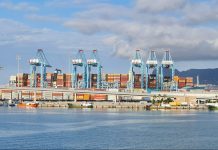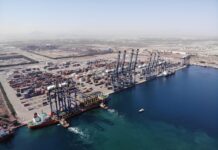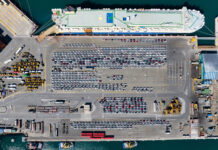Energy supply will become unreliable and costs will increase unless the Government “acts responsibly” and recognizes gas as the key transition fuel for a net carbon zero New Zealand by 2050, Port Taranaki chief executive Guy Roper says.
“Gas is the enabler, not the impediment, for achieving the Government’s goal,” Mr Roper says.
“We support tackling climate change, but if New Zealand is to move to a new energy supply then gas is the crucial link for maintaining reliable and affordable energy for our homes, businesses and industries.”
In April, the Government announced that no further offshore oil and gas exploration permits will be granted. Some onshore permits will be offered to the industry for the next three years.
Mr Roper says it is vital for energy supply reliability, longer term confidence within the industry, and the investigation of potential alternative fuel solutions, that onshore exploration is on-going.
“Gas provides over 25% of New Zealand’s primary energy needs but proven gas reserves are the lowest they have been since 2003 and are forecast to reduce in a relatively short period. New resources are far from guaranteed and need on-going investment, so continuing onshore gas exploration is essential and the absolute minimum.
“We need to get the transition right. If we don’t there will be domestic shortages, which will drive up energy costs and increase imports, there will be increased use of higher carbon fuels, such as coal, and the closure of the oil and gas industry, resulting in job losses.”
A large part of Taranaki’s economy and prosperity is tied to the oil and gas sector, with nearly 6000 of the 8500 industry jobs based in Taranaki. Including related industries, the number of jobs linked to the industry is about 11,000.
Port Taranaki is a key part of the supply chain, with 2.5 million of the company’s five million plus trade tonnes being in bulk liquids, including methanol and LPG. Methanol producer Methanex is the port’s largest customer.
“The consequence of the Government’s lofty goals could be the halving of throughput at the port. This will put pressure on jobs and the port’s ability to support the region through dividends that are paid to our owner the Taranaki Regional Council,” Mr Roper says.
He says the Government must be responsible, have a credible plan and work with the industry to ensure a ‘just transition’.
“As a company we have to be responsible across a range of things, including health and safety, major hazards and climate change, so we expect the Government to act responsibly as well to achieve a balanced outcome when discussing the future of an industry that annually contributes $2.5 billion to the economy,” he says.




